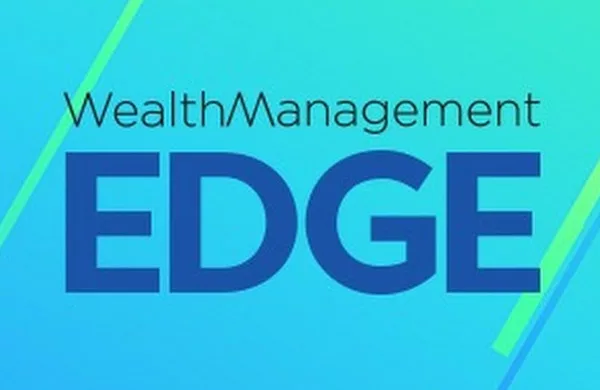I always say that a successful retirement is about achieving and maintaining not just good financial health but also good physical, mental, and emotional health. Think about it: they’re really all related, and for two long months they’ve been under siege by the COVID-19 pandemic. The social distancing measures required to contain the disease have resulted in an economic stoppage that will, to some extent, affect the retirement plans of every American. For millions, the crisis has also increased feelings of anxiety and depression. Think about the disruption of our normal routines, the sense of isolation, and uncertainty. These are all serious issues to deal with.
Now that the economy is opening back up again, people are relieved that all the mental and emotional stress, as well as anxiety, is going to be behind them soon as everyone’s eager to get back to their old routines. That’s understandable. However, this process will take time, and there are likely to be setbacks along the way. If we push too hard too fast, COVID-19 could come back with a vengeance. If you’re not mentally prepared for that possibility, it’s time to start getting prepared.
The steps you take now to maintain good mental and emotional health will pay dividends in the future, whatever it may hold. Remember that mental, emotional, and physical health are all closely related. Here are 10 things you can do to ride out this storm:
1. Limit Time Watching Television
Not only could too much TV during this time be unhealthy physically, but if you’re watching too much news, it can also be mentally unhealthy. Too much negative news can be depressing, and positive news can lead to false hopes. Turning off the tube allows you to shift your focus to the here and now, to appreciate the things for which you’re still grateful during these difficult times
2. Prayer
I think prayer can really help. Praying for your family, praying for what’s happening with the pandemic, praying for a solution. Things will get better over time, and we will get through this. When you remind yourself of all the reasons that you have faith, all of a sudden you become much calmer because you realize the world’s not going to end. Everything’s going to be okay.
3. Get Plenty of Rest
In order to be in a positive mental state, you’ve got to be well rested. If you’re not well rested , it’s easy to become negative. It’s easy to be cranky. It’s easy to be miserable. So, in order to be in that positive state, you’ve got to get the proper amount of rest each and every night.
4. Exercise
Hopefully now people have more time to exercise so they’re actually doing it. When you focus on those things and you’re in a good, positive frame of mind, you can bounce a lot of the negative things away from it.
5. Stay Positive
As you tune out the negative and focus on the positives in your life, you may just realize there are some things that you’re grateful for that were actually brought about by the coronavirus pandemic.
6. Be Grateful
Being grateful is synonymous with developing humility. We all took a punch on this one. Our lifestyles got completely upended, so we had to learn to adapt. However, we will get through this. We will overcome this. It will take some time, but everything begins with being grateful.
7. FaceTime, Zoom, Skype
With the social distancing standards and having to keep friends, family, and entire workplaces apart, they’ve actually become vital tools for staying connected both professionally and socially. Odds are you’re familiar with these technologies, but if not, be aware that the technology is more user-friendly than ever before. Taking advantage of it can be a great way to help you maintain good mental and emotional health.
8. Master New Technologies
Many have been forced to master new technologies that have helped them actually become more connected with friends and family members or made them more efficient at work. These skills will, I believe, continue to be valuable in the new norm that emerges as the pandemic continues.
9. Reorganize Things in Your Home
Another positive has been the opportunity to reorganize things in your home and in your life. Tackle projects that you may have been putting off for years now.
10. Revisit Financial Plans
Take some time to revisit your financial plans and take steps to modernize it for the new corona-economy. The coronavirus crisis will ultimately impact the retirement of virtually every single American in some way, shape, or form. That’s why this $2 trillion coronavirus relief bill created by Congress included several provisions that are aimed directly at retirement planning.
Moreover, there are more and more efforts that I believe are going to be on the way at the federal level, which makes this a perfect time to revisit your own retirement strategy if you haven’t already done so. Changes to your plan might be prudent or even necessary in order to meet your retirement income needs and to help protect your money from the potential of another major market downturn.
Just last week I noted that, compared to March, the financial markets were relatively calm throughout most of April as the pandemic curve began to flatten. I also noted that while some analysts are already saying the worst is over for the stock market, I still believe we have another shoe to drop. Rather than the V or U-shaped recovery some experts are forecasting, I think a W-shaped recovery is actually more likely. That means the almost 30% drop we saw in March is likely to be repeated or possibly even surpassed at least once before the slow, long-term market recovery begins. With unemployment and estimated GDP shrinkage already at historical highs, I believe Wall Street still has a lot of pain in store before stock values once again accurately reflect the economic magnitude of this crisis, and many analysts agree.
Even as the country starts to gradually open back up again, the economic damage and the psychological scars left by the coronavirus crisis will likely take a long time to heal, and there are likely to be setbacks. However, once we accept and we understand that, we can use it as motivation to take steps to mentally, emotionally, and financially adjust to the new normal. So start adjusting now. How? By exercising, eating well, making sure you’re getting your rest, by tuning out the negative as much as humanly possible, and focusing on the things for which you’re grateful. Stay active. Stay connected. Stay engaged. Embrace new technologies that allow you to do so. Finally, of course, maintain good financial health by paying attention to the markets, by understanding all your options and, of course, modernizing your retirement plan for the new corona-economy.






